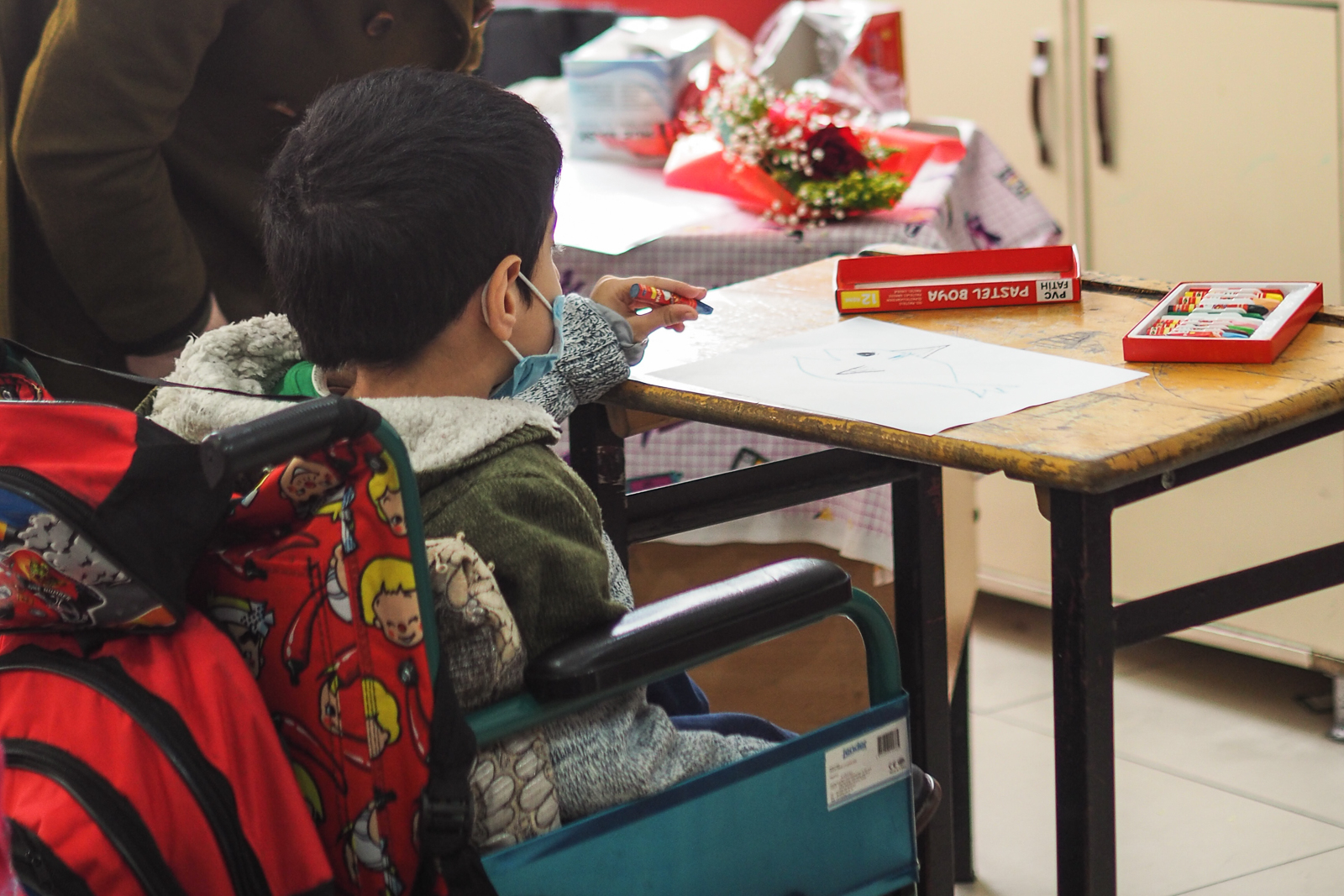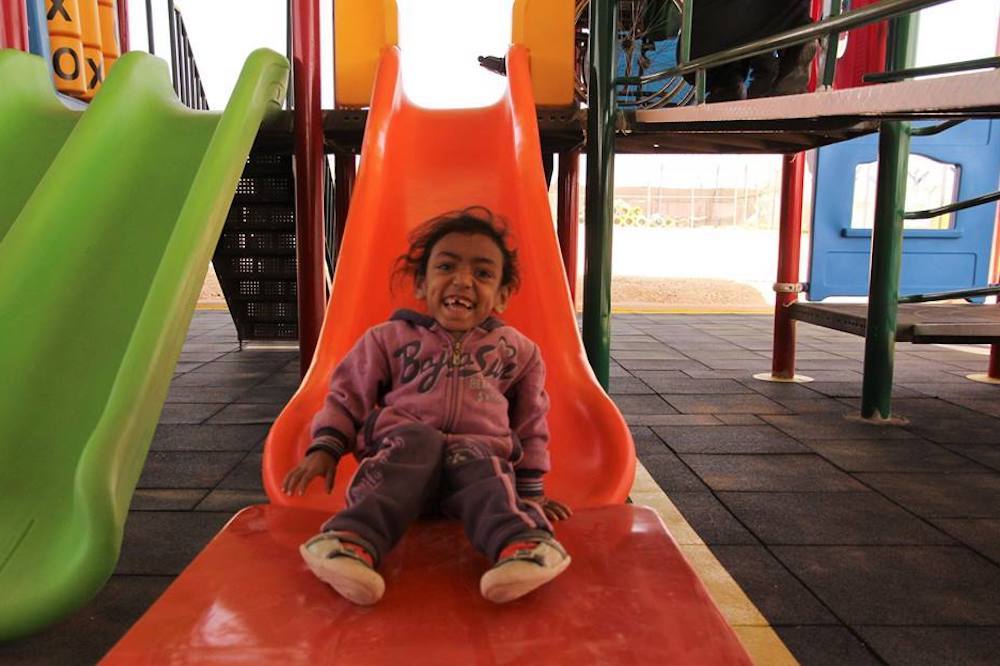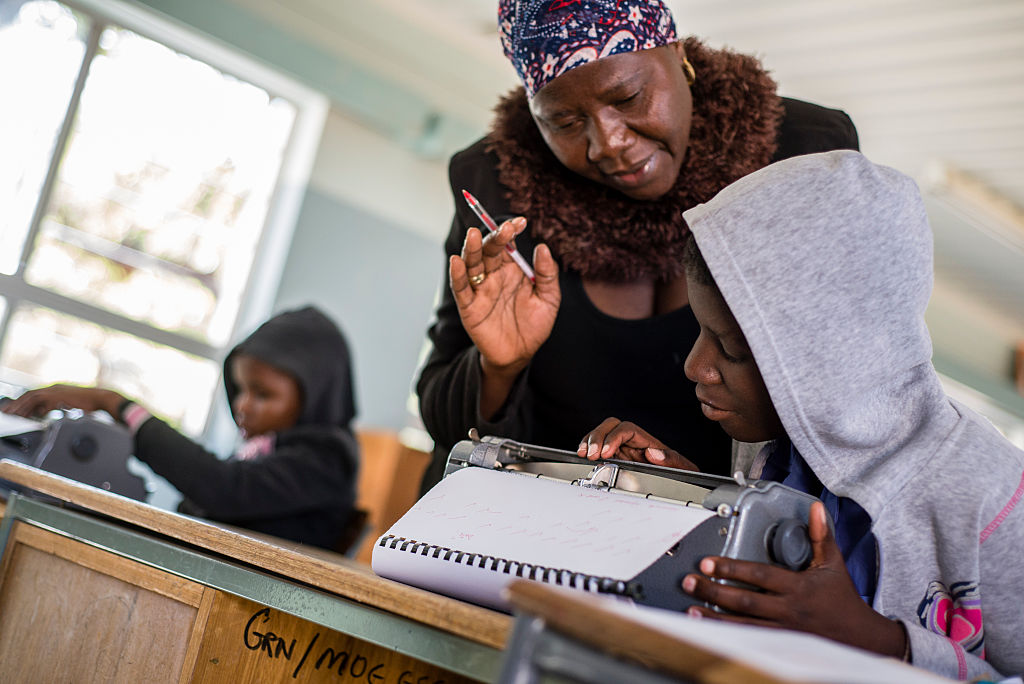
Inclusive playground lets all children have fun together at refugee camp
Children with disabilities, Refugees and internally displaced people
The newly-opened facility at the huge Za'atari camp in Jordan is designed to be used by kids of all abilities.
“The one I like the most is the seesaw. I went up – I was very happy,” says nine-year-old Amal. She’s just tried a new inclusive playground at one of the world’s biggest refugee camps.
The Za’atari camp in Jordan is home to about 80,000 Syrians – and 19,000 children go to school there. But until now there was nowhere for children with different abilities to play together.
The inclusive playground was created by UNICEF in collaboration with Mercy Corps. It’s the first of its kind in Jordan and one of the first in any refugee camp in the world.
We gave children in Za’atari Refugee Camp a sneak peek at their new inclusive playground – you won’t want to miss their reaction 💙😁🙃#ThisAbility pic.twitter.com/ZZoprooFDO
— UNICEF Jordan – يونيسف الأردن (@UNICEFJordan) October 29, 2018
The United Nations agency hopes it will be a prototype for play facilities in schools and communities in humanitarian and development contexts.
“In crisis-affected communities, children with disabilities are among the most marginalised, yet they are still at risk of being excluded from humanitarian assistance,” said Robert Jenkins, UNICEF Representative in Jordan.
The playground has been designed for children of all abilities to play together. It is supervised and includes a swing, merry-go-round, seesaw and play complex accessible to wheelchairs, creative equipment for children with sensory disabilities and a sandpit, trampoline and beanbag designed for children with autism.

Play is a vital part of development for any child – particularly those under five. It teaches children skills, how to interact with each other, to share, how to explore.
Quality inclusive education for children with disabilities is vital too – especially for refugees whose families have already been uprooted from their homes because of conflict.
An estimated 30% of Syrian refugees in Jordan have specific physical or intellectual needs. About 700 children with disabilities are supported by UNICEF at Za’atari camp.
The agency’s work with the Jordanian government to build a more inclusive and accessible education system has seen over 4000 children with disabilities enrol in public schools since 2012.
The Australian government has been helping to strengthen the education system for all children – including the provision of specialised equipment and facilities for two Model Inclusive Schools in Amman and Irbid.
The equipment includes visual disability assistive aids, a system that enhances quality of hearing for students with hearing impairments and sensory rooms.
UNICEF also inaugurated six new kindergarten classrooms and opened a new school in Za’atari camp.
Its work in Jordan is supported by UK aid, the South Korean government and Australian Aid to make facilities in refugee camps, including schools, toilets and the new playground, more accessible for children with disabilities.

More news

Technology has the power to expand education for children with disabilities
